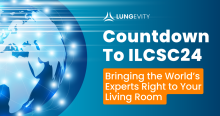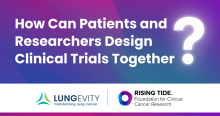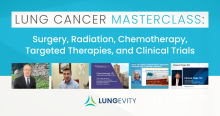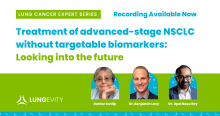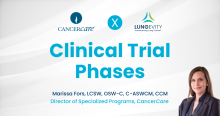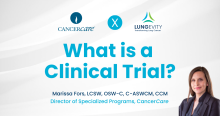Countdown to ILCSC24: Bringing the World’s Experts Right to Your Living Room
Read time: 3 minutes. One of LUNGevity’s two flagship survivorship events, the International Lung Cancer Survivorship Conference (ILCSC), is being held virtually September 20 – 21, 2024. This is a free, online event that allows people with lung cancer and caregivers from around the world to join from the comfort of their own homes and hear from a star-studded lineup of lung cancer experts discussing the latest advances in research and treatment. You can register today for free, or view the conference agenda. Last year’s conference was one of our most successful events yet, with over 900

